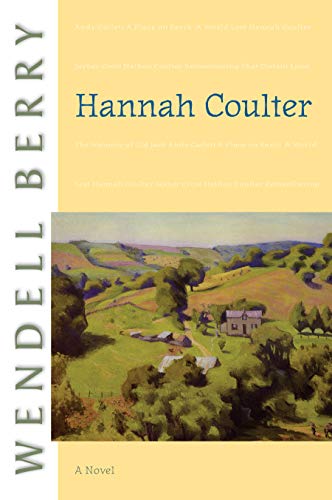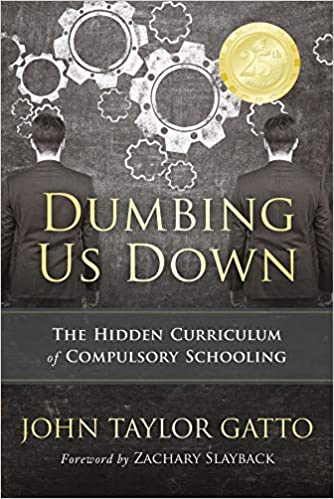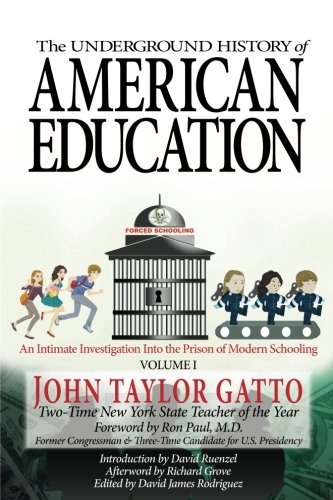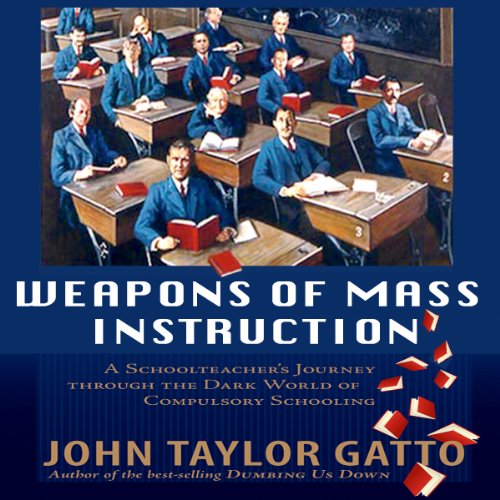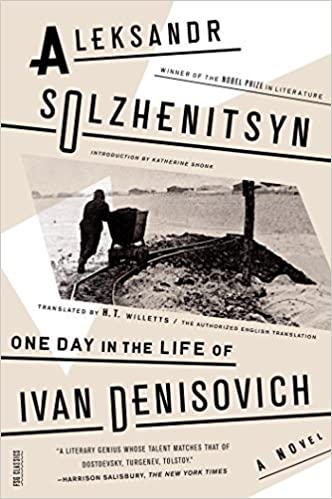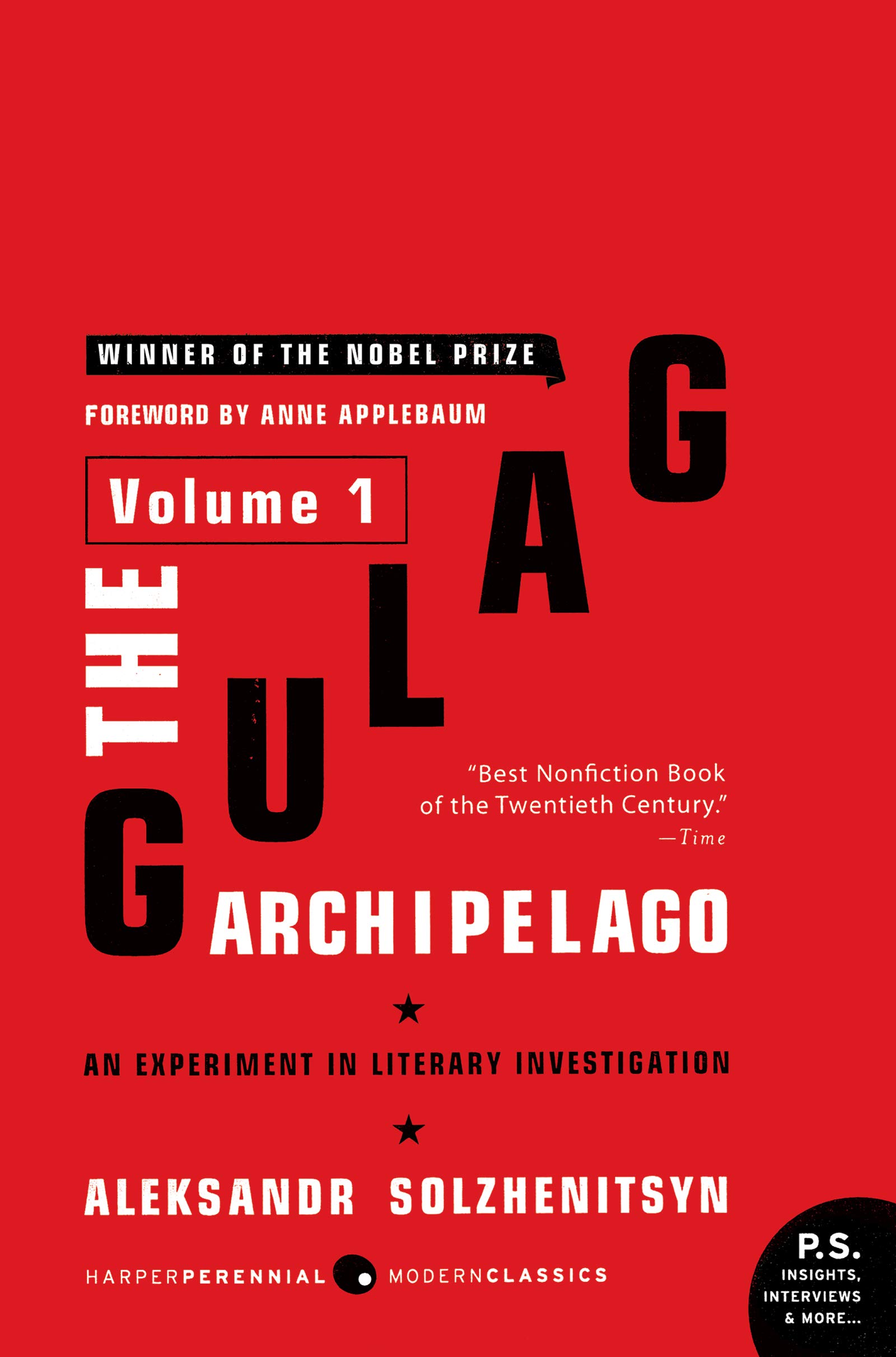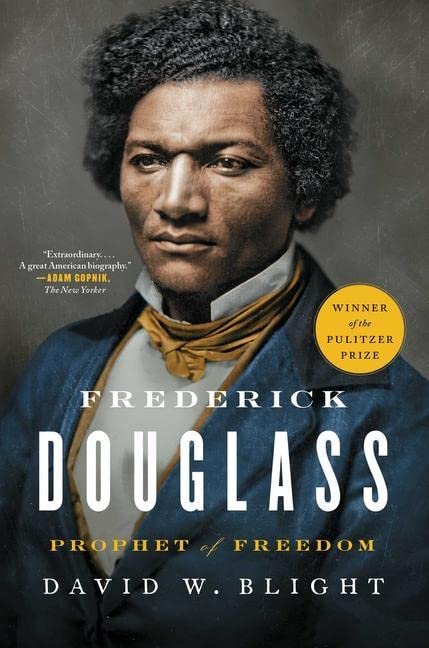Hannah Coulter
Hannah Coulter is Wendell Berry’s seventh novel and his first to employ the voice of a woman character in its telling. Hannah, the now–elderly narrator, recounts the love she has for the land and for her community. She remembers each of her two husbands, and all places and community connections threatened by twentieth–century technologies. At risk is the whole culture of family farming, hope redeemed when her wayward and once lost grandson, Virgil, returns to his rural home place to work the farm.
More info →Dumbing Us Down – 25th Anniversary Edition: The Hidden Curriculum of Compulsory Schooling
After over 100 years of mandatory schooling in the U.S., literacy rates have dropped, families are fragmented, learning "disabilities" are skyrocketing, and children and youth are increasingly disaffected. Thirty years of teaching in the public school system led John Taylor Gatto to the sad conclusion that compulsory governmental schooling is to blame, accomplishing little but to teach young people to follow orders like cogs in an industrial machine.
More info →The Underground History of American Education
"The World's Most Courageous Teacher" reveals the inner circle secrets of the American school system. The legendary schoolteacher, John Taylor Gatto, invested over 10 years of dedicated research to uncover some of the most alarming ideas and writings by the creators and advocates of mandatory attendance schooling, which show where the system came from and why it was created. He combined these facts with his personal experience as a teacher for 30 years in New York public schools, where he won many awards, including being named State Teacher of the Year twice, and has authored an all-time classic. This book was originally published in 2001, and has been printed a number of times. However, this updated version includes new essays from the author, as well as contributions from Dr. Ron Paul, David Ruenzel, and Richard Grove. This is the first of a 3 book volume which will help the reader gain a solid understanding about the American school organization and many of the hidden, yet powerful parts. In this first of set, Mr. Gatto's humble yet bold personality, mixed with humor and class, makes it an enjoyable read, despite the importance and implications of the subject. Mr. Gatto says, "It's time to take our schools back. If they mean to have a war, let it begin now."
More info →One Day in the Life of Ivan Denisovich
The first published novel from the controversial Nobel Prize winning Russian author of The Gulag Archipelago.
In the madness of World War II, a dutiful Russian soldier is wrongfully convicted of treason and sentenced to ten years in a Siberian labor camp. So begins this masterpiece of modern Russian fiction, a harrowing account of a man who has conceded to all things evil with dignity and strength.
First published in 1962, One Day in the Life of Ivan Denisovich is considered one of the most significant works ever to emerge from Soviet Russia. Illuminating a dark chapter in Russian history, it is at once a graphic picture of work camp life and a moving tribute to man’s will to prevail over relentless dehumanization.
More info →The Gulag Archipelago
“BEST NONFICTION BOOK OF THE 20TH CENTURY” —Time
Volume 1 of the gripping epic masterpiece, Solzhenitsyn's chilling report of his arrest and interrogation, which exposed to the world the vast bureaucracy of secret police that haunted Soviet society. Features a new foreword by Anne Applebaum.
“The greatest and most powerful single indictment of a political regime ever leveled in modern times.” —George F. Kennan
“It is impossible to name a book that had a greater effect on the political and moral consciousness of the late twentieth century.” —David Remnick, The New Yorker
“Solzhenitsyn’s masterpiece. ... The Gulag Archipelago helped create the world we live in today.” —Anne Applebaum, Pulitzer Prize-winning author of Gulag: A History, from the foreword
Frederick Douglass: Prophet of Freedom
As a young man Frederick Douglass (1818–1895) escaped from slavery in Baltimore, Maryland. He was fortunate to have been taught to read by his slave owner mistress, and he would go on to become one of the major literary figures of his time. His very existence gave the lie to slave owners: with dignity and great intelligence he bore witness to the brutality of slavery.
Initially mentored by William Lloyd Garrison, Douglass spoke widely, using his own story to condemn slavery. By the Civil War, Douglass had become the most famed and widely travelled orator in the nation. In his unique and eloquent voice, written and spoken, Douglass was a fierce critic of the United States as well as a radical patriot. After the war he sometimes argued politically with younger African Americans, but he never forsook either the Republican party or the cause of black civil and political rights.
In this “cinematic and deeply engaging” (The New York Times Book Review) biography, David Blight has drawn on new information held in a private collection that few other historian have consulted, as well as recently discovered issues of Douglass’s newspapers. “Absorbing and even moving…a brilliant book that speaks to our own time as well as Douglass’s” (The Wall Street Journal), Blight’s biography tells the fascinating story of Douglass’s two marriages and his complex extended family. “David Blight has written the definitive biography of Frederick Douglass…a powerful portrait of one of the most important American voices of the nineteenth century” (The Boston Globe).
In addition to the Pulitzer Prize, Frederick Douglass won the Bancroft, Parkman, Los Angeles Times (biography), Lincoln, Plutarch, and Christopher awards and was named one of the Best Books of 2018 by The New York Times Book Review, The Wall Street Journal, The Boston Globe, The Chicago Tribune, The San Francisco Chronicle, and Time.
More info →
